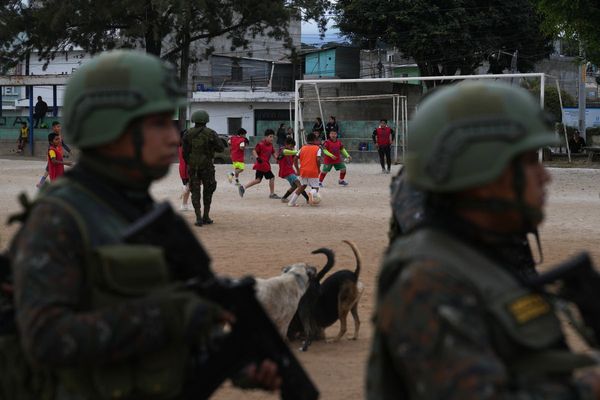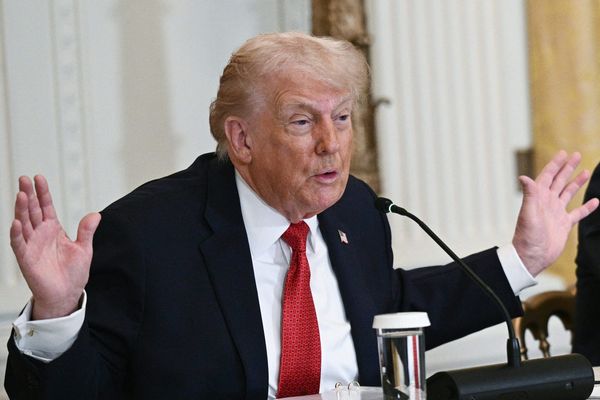
The latest escalation in tensions between Israel and Iran is arguably the most significant among a slew of flare ups, involving both state and non-state actors, in West Asia in the last two years. Even if these conflicts have been seen as the spillover of the Gaza conflict, each one of them carry their own dynamics and regional implications. Beyond the region, the widening sphere of conflict brings in its wake new challenges for India’s diplomatic response. As India has different sets of strategic interests linked to different geopolitical and economic equations in the region, the latest flare up implies New Delhi has to navigate the flux of the emerging scenario.
The current flare-up isn’t a low intensity one, as it has been triggered by Tel Aviv’s attack on nuclear facilities in Iran amidst meandering Washington-led talks with Tehran to scuttle the latter’s nuclear weapons programme. The chances of reprisal attacks and larger conflict looms large over West Asia, and it’s far more upfront than Israel militarily responding to Iran-backed Houthis in Yemen or Hezbollah in Lebanon. The calculations in New Delhi have to factor in the relative configuration of its interests in ties with Tel Aviv and Tehran, while keeping an eye on the moves made in Beijing and Washington. India’s pitch for strategic autonomy is set to have a delicate round of tightrope walk, as it had in the wake of ongoing Ukraine war in eastern Europe. India’s pursuit of its time-tested interests defined its refusal to act as the swing state in the Russia-West binary. In West Asia, however, the configuration of interests means that the response has to find a new variant, and a recalibration.
For India, the last few decades have witnessed Israel emerging as a vital defence partner, and played a collaborative role in India's security and technological modernisation as well as counter-terrorist state action. Since 1992, when India established diplomatic ties with Israel, the partnership has acquired strategic proportions, on bilateral interests as well as issues of multilateral convergence. Contrary to perceptions, the New Delhi-Tel Aviv ties had a longer history of reciprocal understanding, going back to formative years of Jewish state’s formation in 1948. At the same time, India had to strike a balancing of interests with other stakeholders in the region, including world powers, to build its ties with Tel Aviv in overt or covert ways.
This week, for instance, New Delhi has chosen to abstain from voting on the UNGA resolution for Gaza ceasefire - fourth time in three years, except in December 2024 when India voted in favour of immediate ceasefire. On all these occasions, however, India’s explanatory note diplomacy as an end to the conflict, called for bringing an end to the humanitarian crisis. The point that these resolutions weren’t critical of Hamas, as the US argued while abstaining, could also have been placed in its line of reasoning. It remains to be seen, however, whether India sends its representative to the UN conference, starting June 17, for creating conditions for a “two-state solution”.
When New Delhi turns its gaze to Tehran, another set of interests define the reasoning for close ties, and that extends to stakes in stability of West Asia as a region as well. For India, the geopolitical significance of Iran can’t be overstated, it’s positioned as the key power to reckon in West Asia, especially with Russia and China as Tehran’s allies. Along with crude oil imports from Iran, which have dwindled in recent years because of US sanctions, the country holds strategic importance for India for its potential to offer access to Afghanistan and West Asia through Chabahar as well as in the form of a counterweight in regional geopolitics.
In recent months, there has been realisation in New Delhi of rebuilding ties with Tehran, an attempted reset included external affairs minister S Jaishankar’s visit to Tehran early this year.
One of the key imperatives for India’s willingness for reset in the ties with Iran is a wish to offset the effects of its decision to side with the US sanctions against oil imports from Iran. This had happened in wake of Washington’s 2018 withdrawal from the Joint Comprehensive Plan of Action of 2015, which had sought to restrict Tehran’s nuclear programme in exchange for sanctions relief.
There seems to be an emphasis on India’s diplomatic thinking about the need to diversify its options, both strategic as well as economic. India is alert to the significance of spreading its interests over the key pillars of West Asian power architecture.
New Delhi has been keen on broadening the means to meet energy needs, in which the import of Iranian crude oil had an important role for most part of the last decade. Before 2018, India imported almost one-tenth of its crude oil needs from Iran. But, in the last five years, India’s decision to reduce the import of Iran crude oil has witnessed China emerging as the top importer of Iranian oil.
Here the scenario of competing interest also plays out. Beijing has spread an array of strategic interests in its ties with Tehran. In its efforts to meet its ever increasing energy needs, New Delhi would be keen on reviving the volume of its oil trade with Tehran. This possibility would meet a mutuality of interests. India is the world’s third largest crude oil importer, and Tehran would also want to have a key procurer back in its oil market reach in the leading economies of the world. New Delhi wouldn’t want to respond to that with reciprocal terms, and with an eye on how Beijing could leverage that competitive edge.
Beyond this rationale of oil imports, the geostrategic case isn’t less appealing either. India is eyeing to invest with renewed vigour in geostrategically important Chabahar Port, opening a key access point to Central Asia for India, an alternative that does away with the Pakistan route barrier for India’s trade. To add to that, India will also be keen on developing the International North-South Transport Corridor. Such projects also form the core of a mutuality of interests, as Tehran would see them as effective guarantees against the sanctions imposed by the West.
In recalibrating its position on the Israel-Iran conflict, India’s assessment can’t lose sight of tightrope walking, given the geopolitical, economic and strategic significance both countries hold for India. New Delhi has to straddle diverse worlds of interests between Tehran and Tel Aviv, with an elbow room of its own.
If you liked this piece, let our reporters tell you why you should subscribe to Newslaundry.
Newslaundry is a reader-supported, ad-free, independent news outlet based out of New Delhi. Support their journalism, here.







